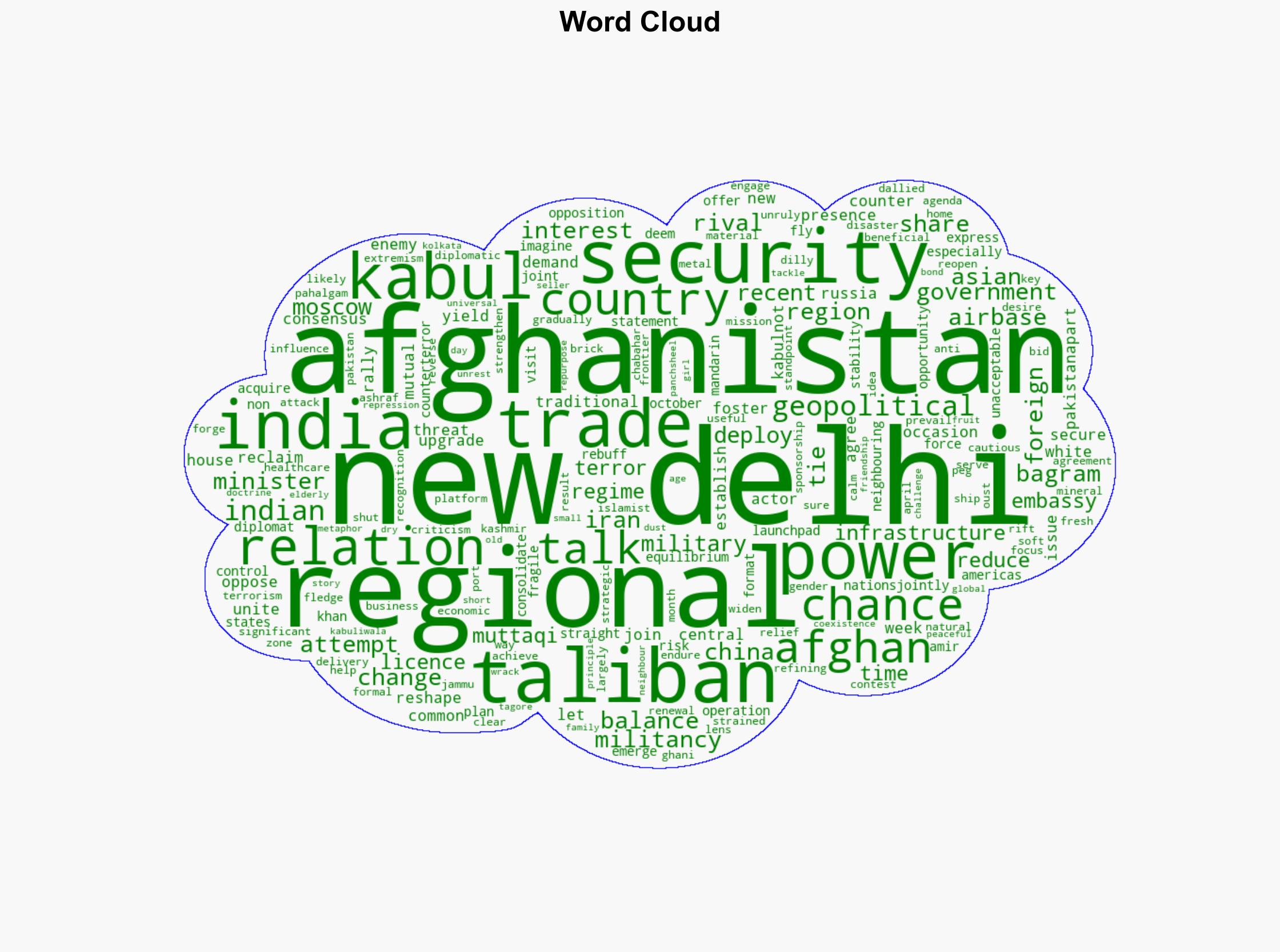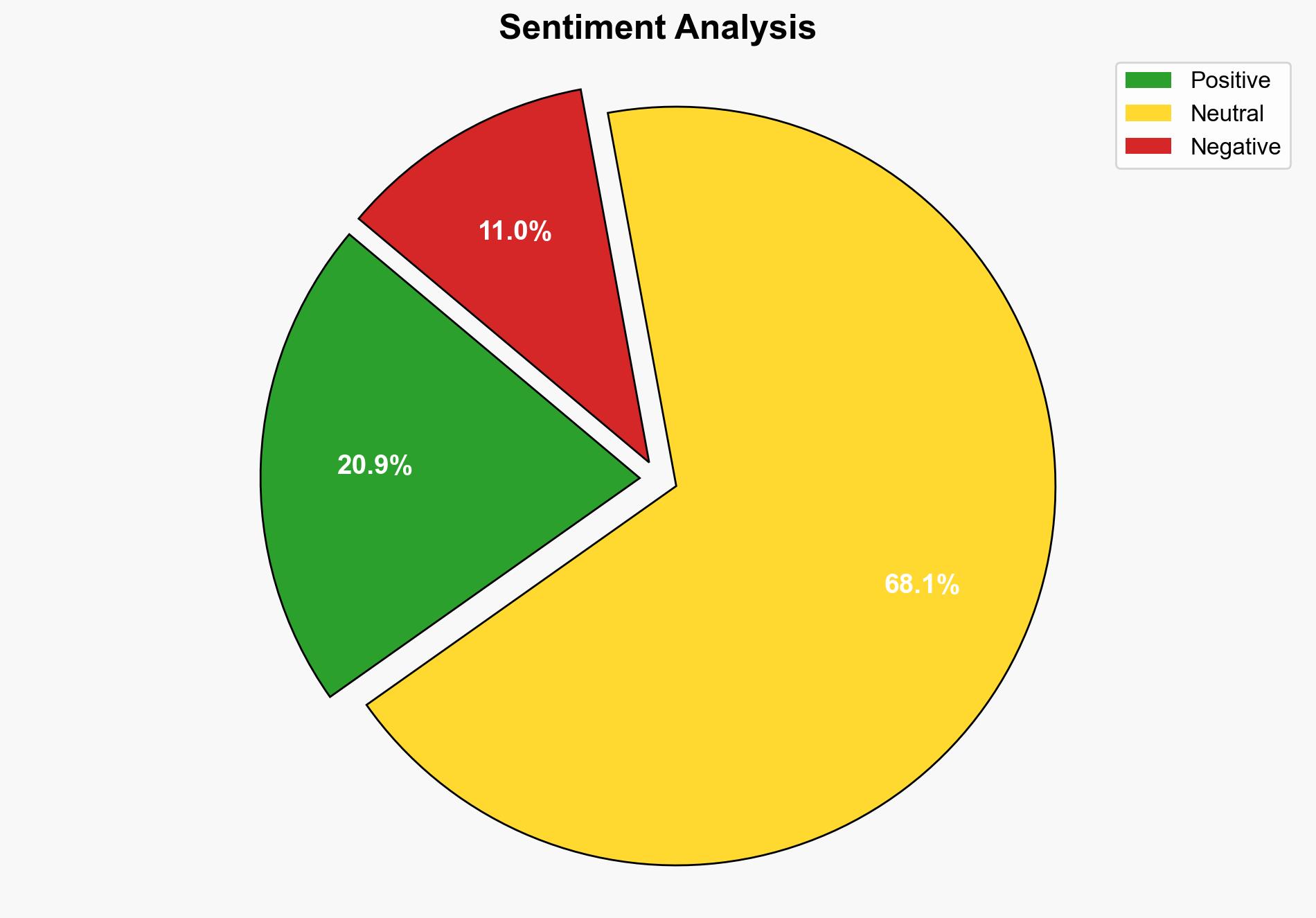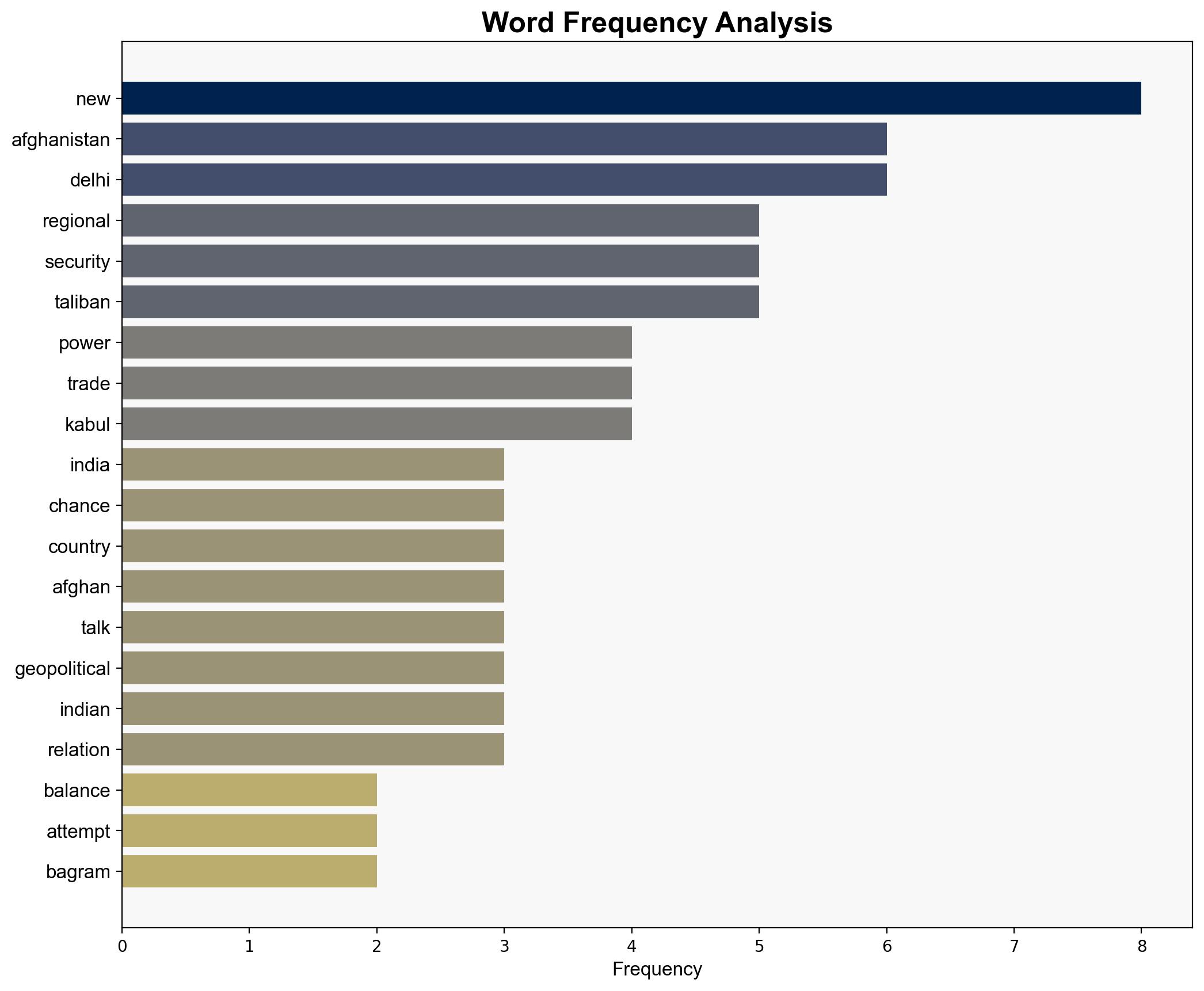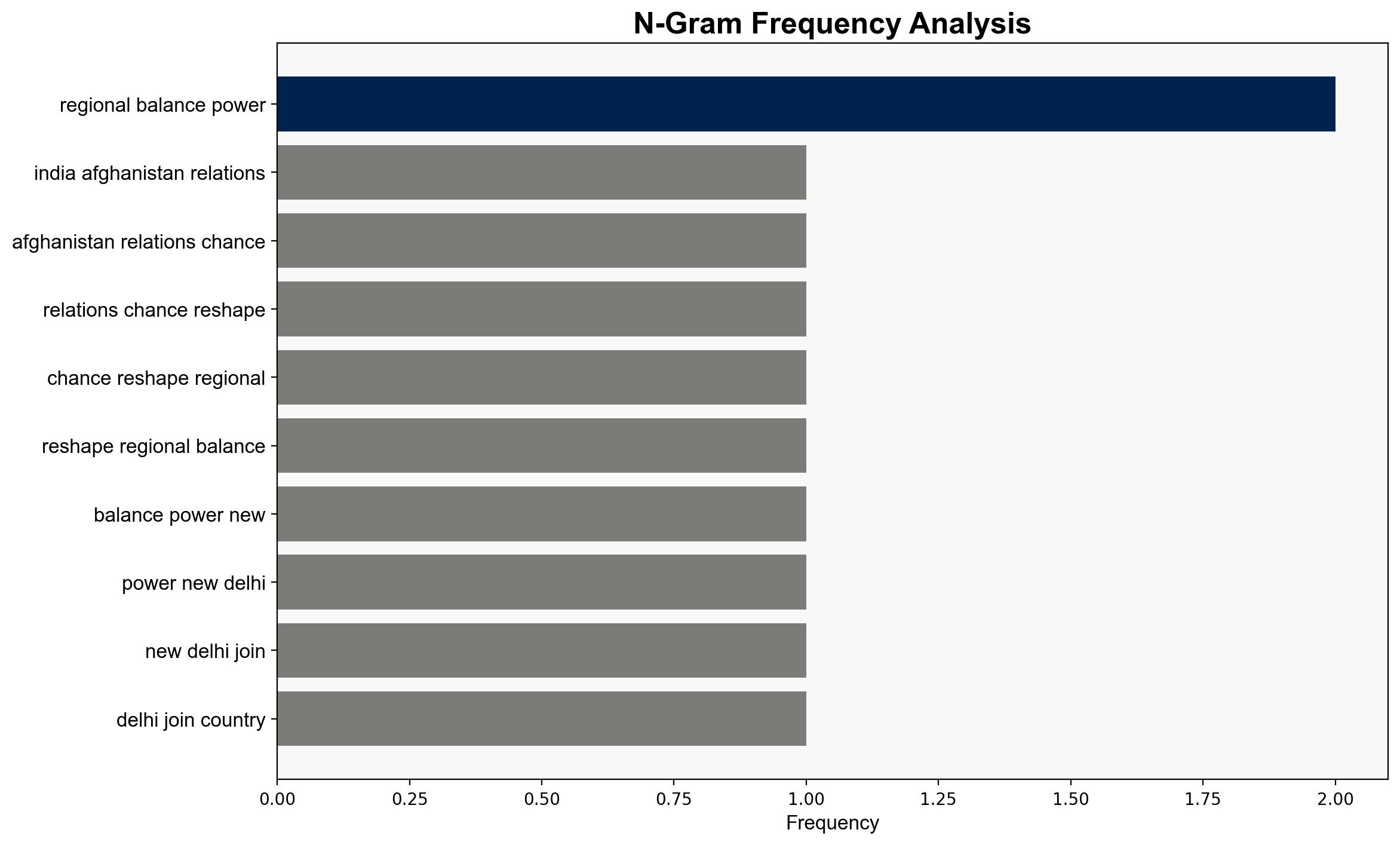India-Afghanistan relations A chance to reshape the regional balance of power – Livemint
Published on: 2025-10-10
Intelligence Report: India-Afghanistan relations A chance to reshape the regional balance of power – Livemint
1. BLUF (Bottom Line Up Front)
India’s engagement with Afghanistan presents a strategic opportunity to influence regional dynamics, but it is fraught with challenges related to security and diplomatic recognition of the Taliban regime. The hypothesis that India can leverage this relationship to counterbalance Chinese and Pakistani influence is better supported. Confidence level: Moderate. Recommended action: India should cautiously advance diplomatic and trade relations with Afghanistan, focusing on mutual security interests and economic opportunities, while maintaining a strategic distance from formal recognition of the Taliban regime.
2. Competing Hypotheses
1. **Hypothesis A**: India can reshape the regional balance of power by strengthening ties with Afghanistan, thereby countering Chinese and Pakistani influence.
2. **Hypothesis B**: India’s engagement with Afghanistan will be limited by the Taliban’s ties to Pakistan and potential instability, preventing significant shifts in regional power dynamics.
Using ACH 2.0, Hypothesis A is more supported due to India’s strategic interests in countering China’s Belt and Road Initiative and Pakistan’s influence, as well as the potential economic benefits from mineral trade. However, Hypothesis B remains plausible given the Taliban’s historical ties with Pakistan and the potential for regional instability.
3. Key Assumptions and Red Flags
– **Assumptions**: India assumes that economic engagement can be separated from political recognition of the Taliban. It also assumes that the Taliban will act independently of Pakistan’s influence.
– **Red Flags**: The Taliban’s historical ties with Pakistan and ongoing security concerns in Jammu and Kashmir. The lack of a formal diplomatic framework with the Taliban could undermine long-term engagement.
4. Implications and Strategic Risks
– **Economic**: Potential for increased trade through mineral exports and infrastructure development.
– **Geopolitical**: Risk of alienating traditional allies if India moves too close to the Taliban without broader international consensus.
– **Security**: Increased risk of militancy spillover into India if Taliban-Pakistan ties strengthen.
– **Psychological**: Potential domestic backlash in India due to perceived support of a regime with a poor human rights record.
5. Recommendations and Outlook
- **Mitigate Risks**: Strengthen intelligence and security cooperation with regional allies to monitor Taliban activities.
- **Exploit Opportunities**: Develop economic ties focused on non-controversial sectors like healthcare and education.
- **Scenario Projections**:
– **Best Case**: India successfully balances engagement, enhancing regional influence and economic gains.
– **Worst Case**: Increased militancy and regional instability due to Taliban-Pakistan cooperation.
– **Most Likely**: Gradual improvement in ties with limited economic benefits and ongoing security challenges.
6. Key Individuals and Entities
– Amir Khan Muttaqi
– Indian diplomatic and security officials
7. Thematic Tags
national security threats, cybersecurity, counter-terrorism, regional focus





